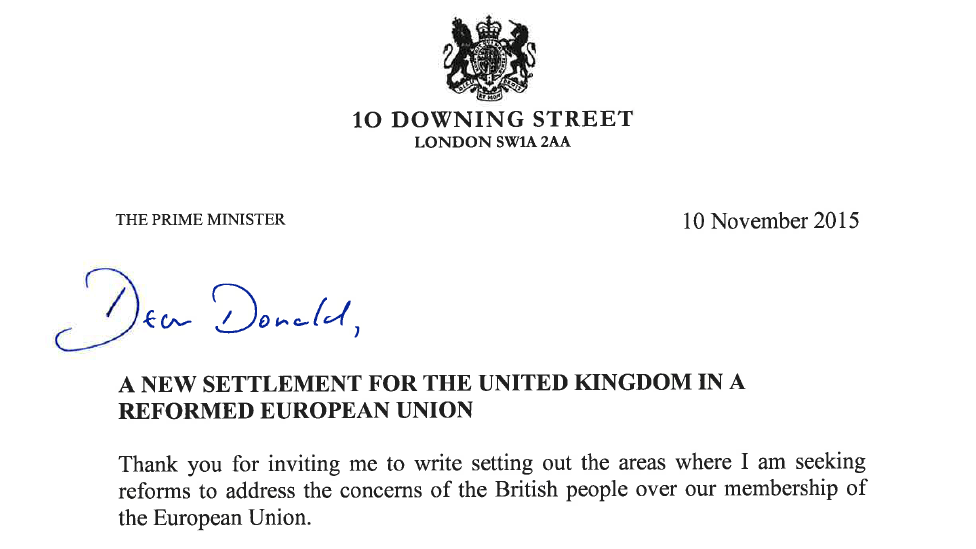Donald Tusk: Deal on UK's EU renegotiation 'very tough'
- Published
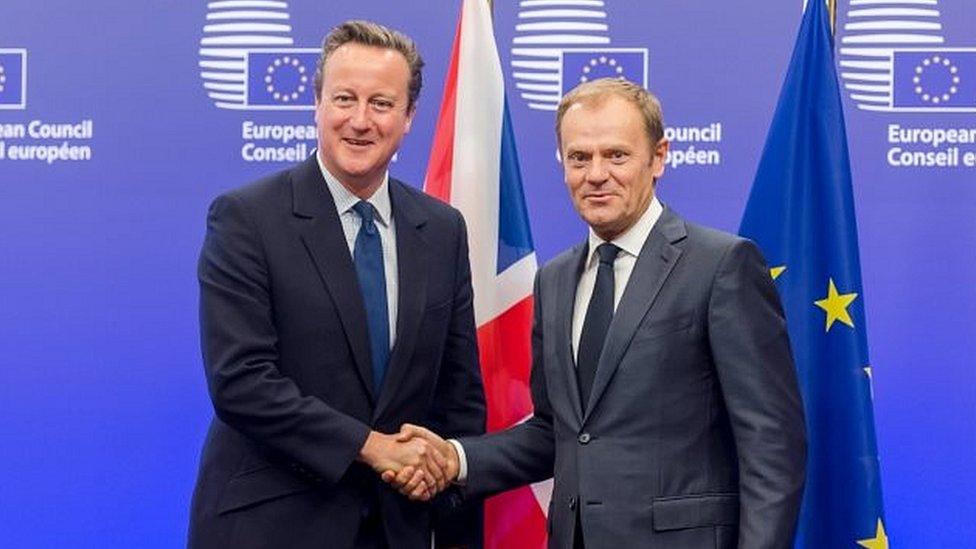
David Cameron and Donald Tusk at an EU summit
Reaching a deal on David Cameron's EU renegotiation goals will be "very, very tough", European Council President Donald Tusk has said.
In his first comment since the UK prime minister wrote to him setting out his objectives, Mr Tusk said there was "no guarantee" of a deal by December.
"I have to say that it will be really difficult to find an agreement," added the European Council president.
Talks and sounding out other countries will start next week.
Mr Tusk made his comments at an emergency EU summit on migration, in Malta, which Mr Cameron was not able to attend because of the visit of Indian prime minister Narendra Modi to the UK.
'Timing not good'
The council president said the chances of getting a deal on the UK's demands by the time EU leaders next met at a summit in a month's time were not high.
"Their requests are tough and this is why this matter was so interesting for me, but I have to say that it would be really difficult to find an agreement and, for sure, there is no guarantee that we can do this by December," said Mr Tusk.
Speaking to BBC Newsnight, French digital affairs minister Axelle Lemaire suggested there was "no willingness, at least in the short term" to change EU treaties to accommodate the UK's request to restrict newly-arrived EU citizens' access to benefits.
"This is not something that the French government would see as being reasonable... So there's the question of is it legal or not and there's the question of is it good to raise the issue at the moment and this, the timing is probably not so good," she said.
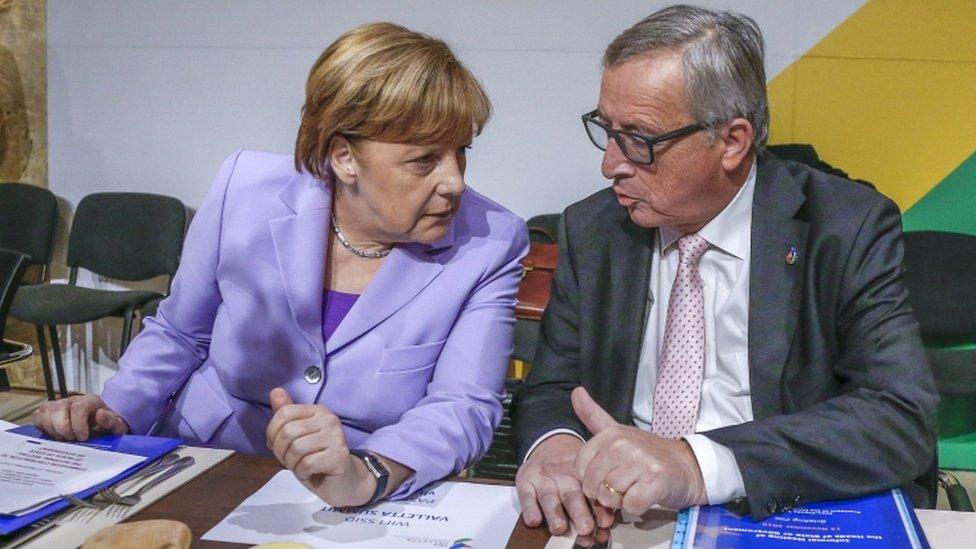
EU leaders have been holding an informal meeting in Malta
Ms Lemaire also sounded a note of caution over the proposal to exempt the UK from "ever-closer union", questioning what it actually meant.
"If it's getting nearer to a protocol like the ones that were signed for Denmark and for Ireland, this is a matter open for discussion.
"But if it's a complete re-questioning of the sense of the original treaties, this is probably not something we could agree on," she told Newsnight.
'Is that it?'
Mr Cameron bowed to pressure from other EU leaders and set out the UK's four key demands in the negotiations on Tuesday.
He is keen to press ahead with an in/out referendum but has said he will not announce the date of it, which must be before the end of 2017, until he has secured an agreement from the other EU leaders.
In his letter, external Mr Cameron said four objectives lay at the heart of the UK's renegotiations:
Protection of the single market for Britain and other non-euro countries
Boosting competitiveness by setting a target for the reduction of the "burden" of red tape
Exempting Britain from "ever-closer union" and bolstering national parliaments
Restricting EU migrants' access to in-work benefits such as tax credits
Examining the four key points from Cameron's letter
If the demands are met, Mr Cameron said "I am ready to campaign with all my heart and soul to keep Britain inside a reformed European Union".
At a press conference on Tuesday, he hit back at claims by former Tory Chancellor Lord Lawson that the four goals were "disappointingly unambitious", saying they reflected what the British people wanted and would be "good for Britain and good for the European Union".
"It is mission possible and it is going to take a lot of hard work to get there," said the prime minister.
But his demands were met with ridicule by some Conservative Eurosceptics, with backbencher Bernard Jenkin stunning MPs by saying: "Is that it?"
Former Tory cabinet minister John Redwood said Mr Cameron should be asking for "much more" and there was nothing in Mr Cameron's speech to suggest Britain would get "anything like the protection we need" from European laws.
"It's about more than borders and migration," he added, "it's about who governs".
Referendum on the UK's future in the European Union

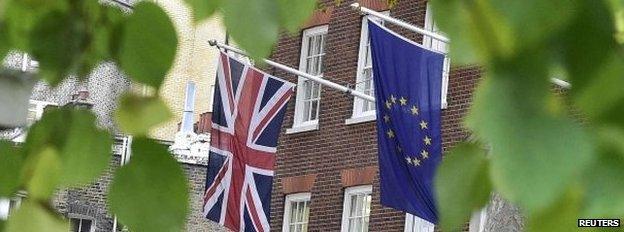
The UK is to have a referendum by the end of 2017 on whether to remain a member of the European Union or to leave. The vote is being proceeded by a process of negotiations in which the Conservative government is seeking to secure a new deal for the UK.
Explained: What David Cameron wants from the EU negotiations
Guide: All you need to know about the referendum
- Published12 November 2015
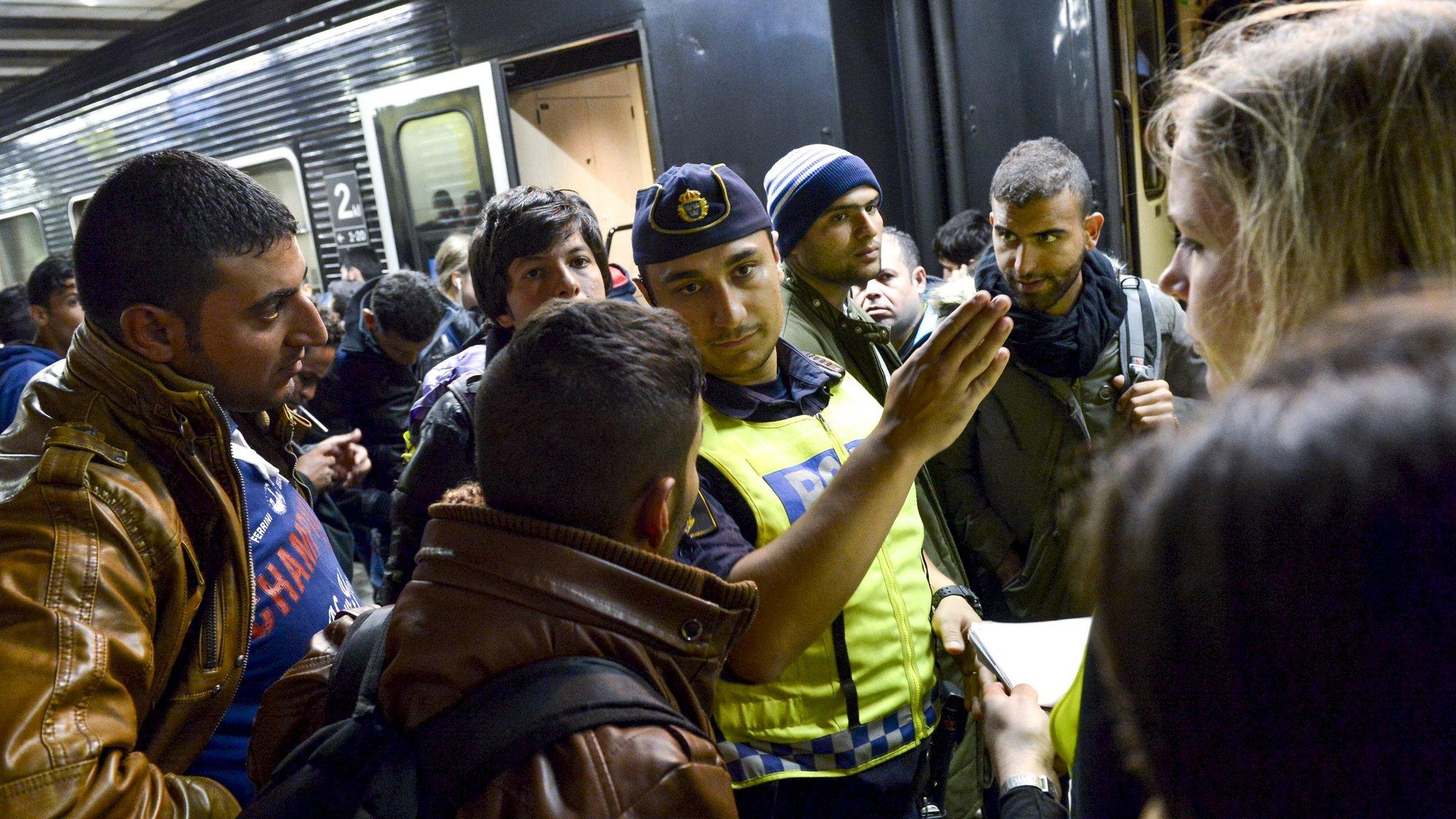
- Published11 November 2015
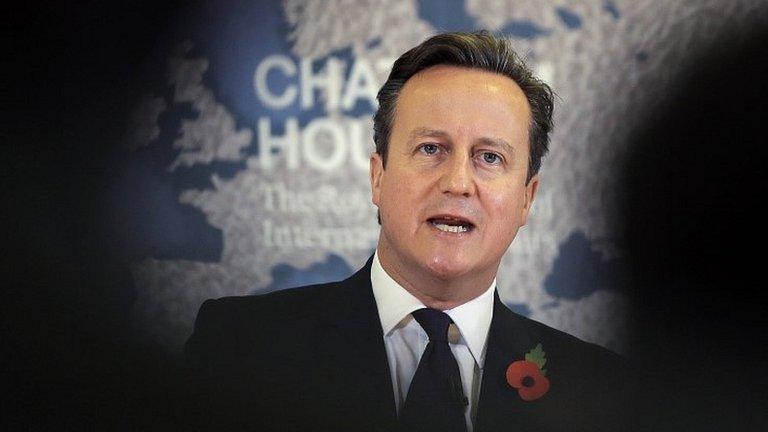
- Published10 November 2015
